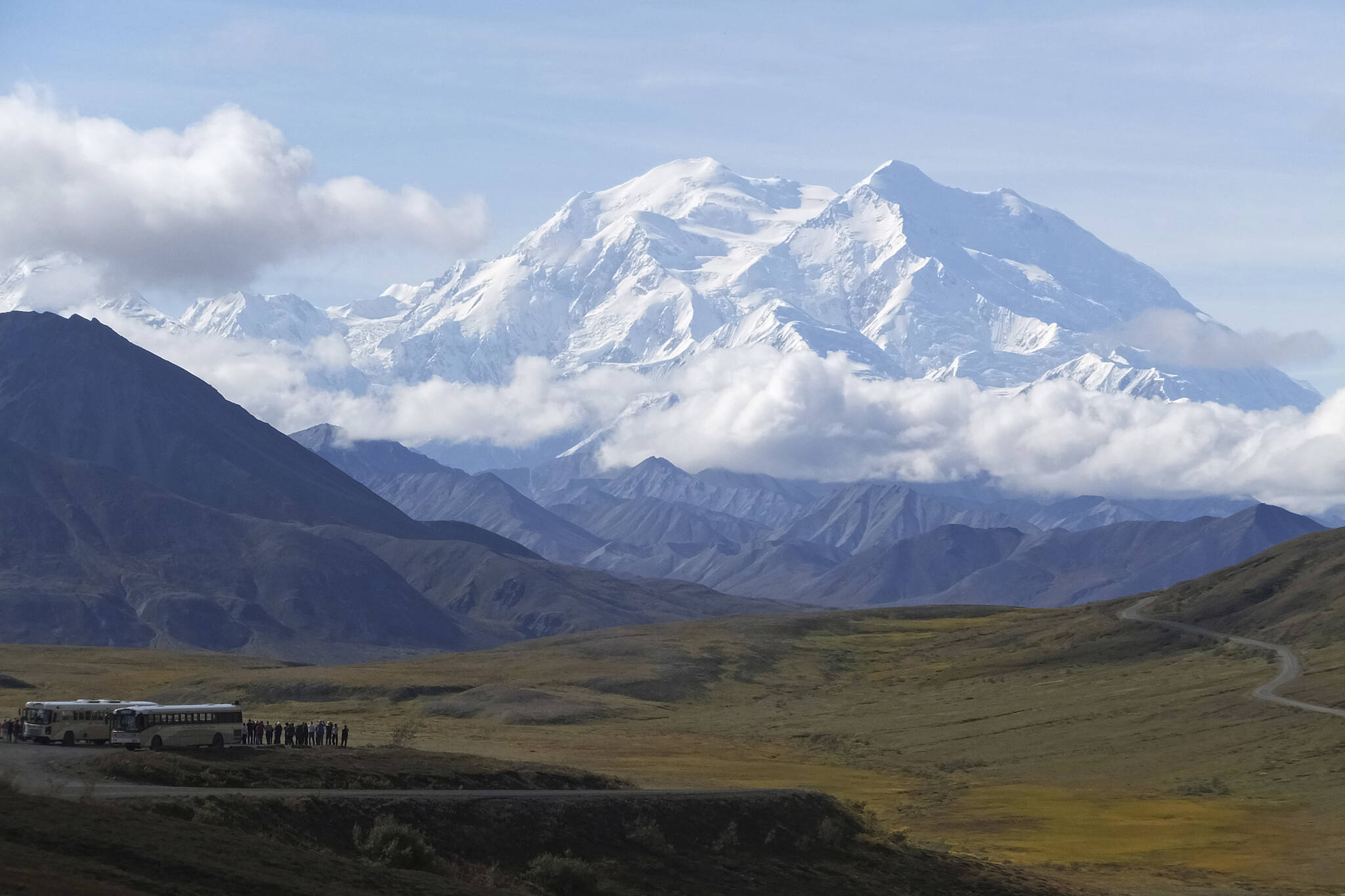By Mark Thiessen
Associated Press
ANCHORAGE — A Utah doctor is accused of lying about ill patients in his climbing party to get a high-altitude government helicopter to rescue him off the tallest mountain in North America after a failed summit and of destroying evidence.
Dr. Jason Lance, who is a radiologist in Ogden, Utah, was charged Tuesday with three misdemeanors from his May attempt to summit Denali, a 20,310-foot peak located about 180 miles north of Anchorage.
Lance declined comment to The Associated Press on Thursday when reached at his Ogden practice. His virtual arraignment is scheduled for Dec. 6 through the U.S. District Court in Fairbanks.
Lance and another man named in the court documents as A.R. decided to become a team on May 24 at a camp at the 14,200-foot level to begin their summit along the West Buttress, described in court papers as the most popular climbing route on Denali.
Somewhere below the 19,200-foot level, Lance saw his partner begin to exhibit symptoms of altitude sickness. Lance decided his partner was too ill to continue the summit and left him with another group of climbers and continued alone to the peak, according to court documents. He also took the man’s satellite communication device, authorities said.
The other climbers abandoned their own summit attempt to help the ill man descend.
Later, the court documents say Lance abandoned his own summit attempt and rejoined the other three men on the descent as they were nearing Denali Pass at 18,200 feet.
The four began to descend with Lance in the lead, A.R. behind him and then the other team. Lance and A.R. were not roped together.
Then A.R. fell from the top of Denali Pass, plummeting about 1,000 feet. Lance triggered the satellite communication device and reported the fall.
Denali National Park and Preserve’s high-altitude helicopter responded and took A.R. to waiting paramedics in the nearby town of Talkeetna.
After A.R. was off the mountain, the court documents say Lance used the communications device to send this message to the manufacturer’s emergency response center: “No injuries. Stuck without equipment after climber fall. Request assisst (sic) for evac.” The center responded, advising him to contact Denali National Park directly.
Nearly an hour later, park officials told him if he had a rope, he should “rope up and begin descending.” He responded by saying they could not safely descend.
The park told him the helicopter was no longer flying that night and the only option was to descend.
After receiving that message, Lance responded 21 minutes later: “Cant descend safely. Patients in shock. Early hypothermia. Cant you land east of pass?”
Given that medical news, the helicopter launched but hadn’t informed Lance. Shortly after launching, it abandoned the mission when guides at the nearby high base camp reported the three climbers were climbing down.
In later interviews, neither member of the other climbing team reported they suffered from medical shock or hypothermia at any time. They also said they spent hours trying to convince Lance to descend with them the 1,000 feet to the 17,200-foot high base camp.
Lance insisted they stay put, and that the National Park Service was obligated to rescue them because “we’ve paid our fee,” according to court documents.
The other team finally convinced him to descend, which they did without incident.
The next day Denali Mountaineering Ranger Chris Erickson, who is also a law enforcement officer, interviewed Lance at base camp. Erickson said he was to safeguard all of A.R.’s equipment, including his satellite communication device. According to court documents, Lance refused to hand over the device.
Though Erickson ordered him not to delete any messages off the device, authorities allege he zipped himself inside his tent alone for up to five minutes before handing it over.
In a follow-up interview on May 26, Erickson told Lance the other climbers in the party denied suffering from shock or hypothermia.
Lance responded he was a licensed and trained physician and would recognize early hypothermia better than a climber. He added he didn’t need to be lectured on hypothermia, the court documents say.
When he initially received it, Erickson said the satellite communication device contained multiple messages Lance sent to park officials, claiming medical necessity for a transport. However, deleted messages obtained through a search warrant served on the manufacturer showed multiple additional messages between Lance and the manufacturer’s rescue center. Among them were Lance’s proclamation that there were no injuries and they simply lacked the proper equipment to descend, court documents say.
Lance faces three counts, interfering with and violating the order of a government employee and for filing a false report.

